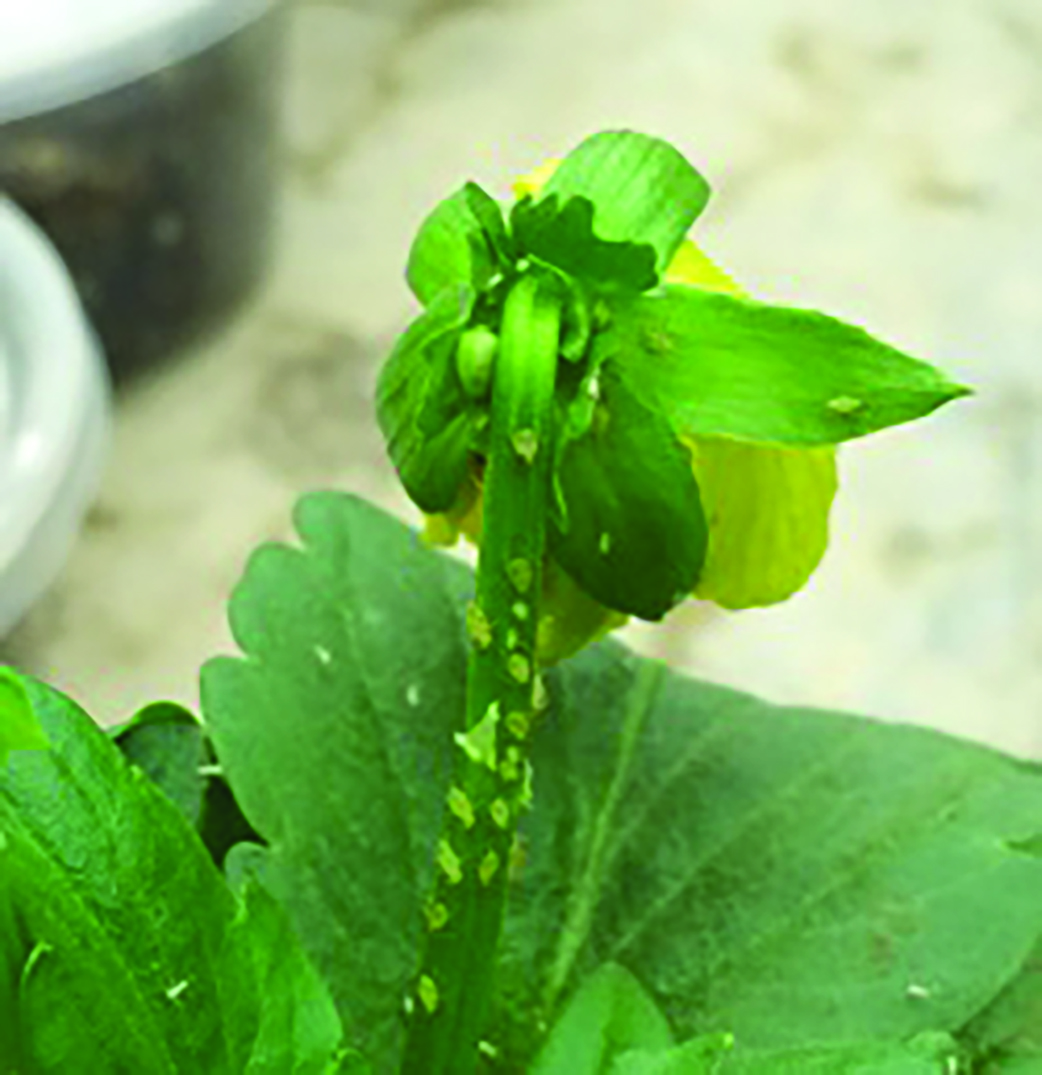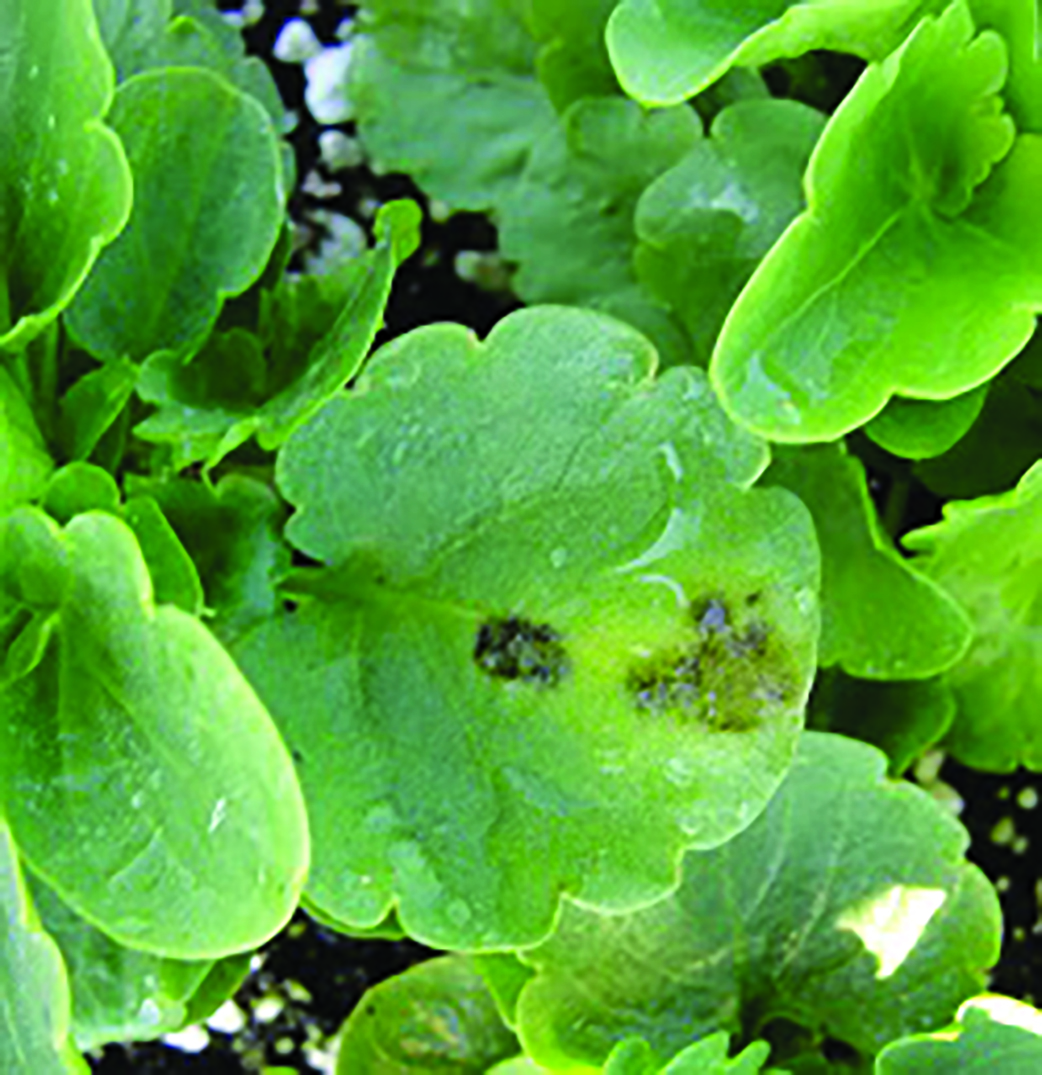Mastering Pansy Production from Roots to Petals
-
August 08, 2025
-
Share this article:
- SHARE:
Pansies are popular because of their vibrant colors, seasonal hardiness and easy care during the growing season. However, insects, foliar disease and environmental pressures also make them one of the most challenging plants to produce. Successful production of healthy, high-quality pansy crops, whether in fall or spring, requires careful attention and implementation of solid cultural practices to mitigate threats.
Pro Tips to Manage Pests
Common pests like aphids, thrips, fungus gnats and whiteflies are frequent threats to pansies. These insects cause visible damage and act as vectors for diseases and viruses. Regular monitoring is crucial for early detection. To help prevent infestations, employ proper cultural practices such as inspecting new plants for insects and reducing weeds within and around production areas to help safeguard crops.
 Aphids on pansy stem, Syngenta photo
Aphids on pansy stem, Syngenta photoDefeat Diseases
Pansies are prone to several foliar diseases, such as anthracnose, Botrytis and Cercospora leaf spot. Early identification and treatment are key to preventing these diseases from spreading. To minimize risks, maintain clean growing areas, limit overhead irrigation (preferably watering in the morning for quicker leaf drying) and remove infected plants as needed. Regular sanitation practices also help reduce the chance of infection and support healthier growth.
Boost Root and Soil Health
Root and soil diseases like black root rot, Pythium, Rhizoctonia and Fusarium can be more difficult to manage, as they often lurk beneath the soil surface. These pathogens are harder to detect and once established, they can be tough to eliminate. Curative treatments tend to be ineffective once infection sets in, so taking preventive steps is crucial.
- Start with clean pots, liners and growing media
- Disinfect greenhouse surfaces, avoiding damage to roots and stems
- Apply preventive fungicides
 Early Cercospora leaf spot on pansy, Syngenta photo
Early Cercospora leaf spot on pansy, Syngenta photoOptimize Production with an Agronomic Program
A well-rounded agronomic program is essential to manage insects and diseases. This Pansy Agronomic Program incorporates resistance management strategies through proper mode of action rotations. By rotating fungicides such as Subdue Maxx® and Postiva™, and insecticides such as Endeavor®, Citation® and Mainspring® GNL, growers can reduce the likelihood of insect flare-ups and disease outbreaks, ensuring consistent, healthy crops. This proactive approach can also save time and reduce the need for corrective measures.
By staying vigilant and following these best practices, growers can navigate the complexities of pansy production and achieve successful, pest-free crops year-round.
All photos are either property of Syngenta or are used with permission.
© 2025 Syngenta. Important: Always read and follow label instructions. Some products may not be registered for sale or use in all states or counties and/or may have state-specific use requirements. Please check with your local extension service to ensure registration status and proper use. Citation®, Endeavor®, GreenCast®, Mainspring®, Postiva™, Subdue Maxx® and the Syngenta logo are trademarks of a Syngenta Group Company. All other trademarks are the property of their respective third-party owners.